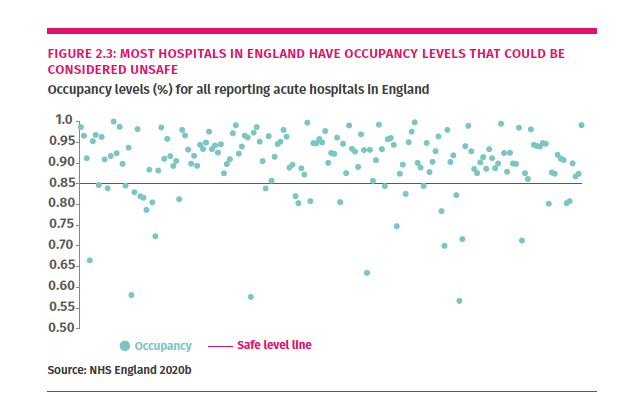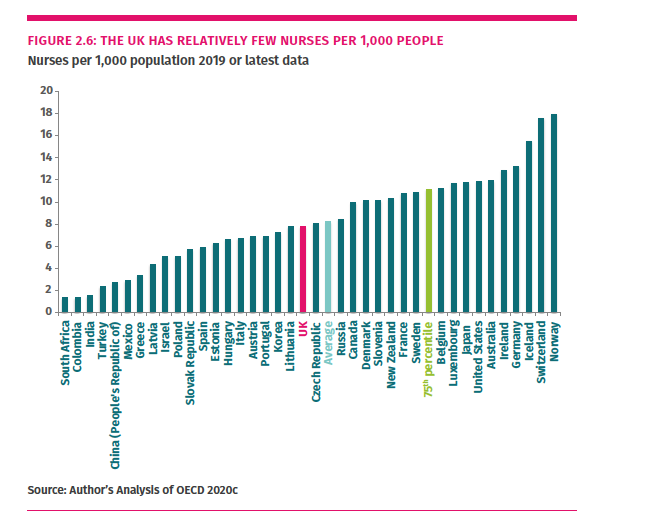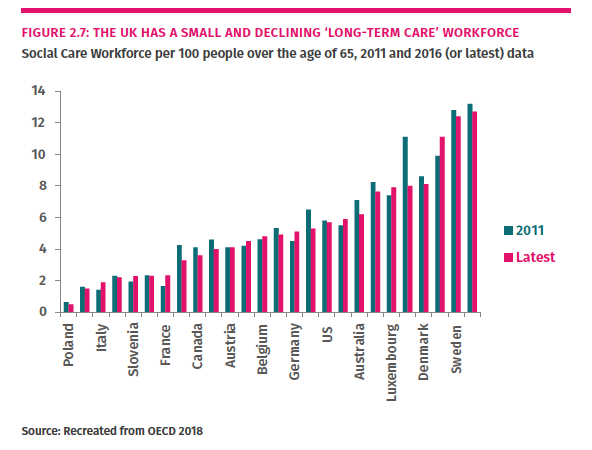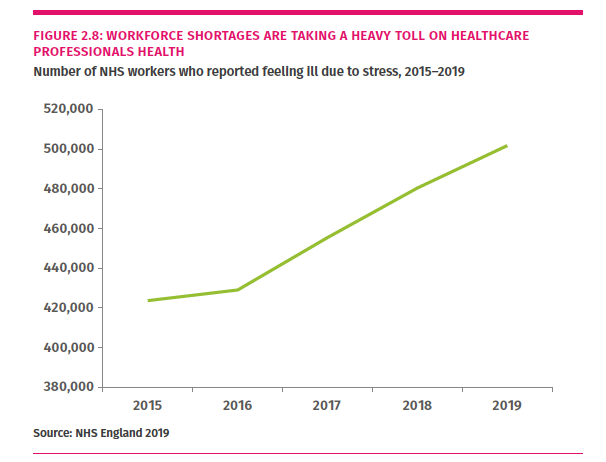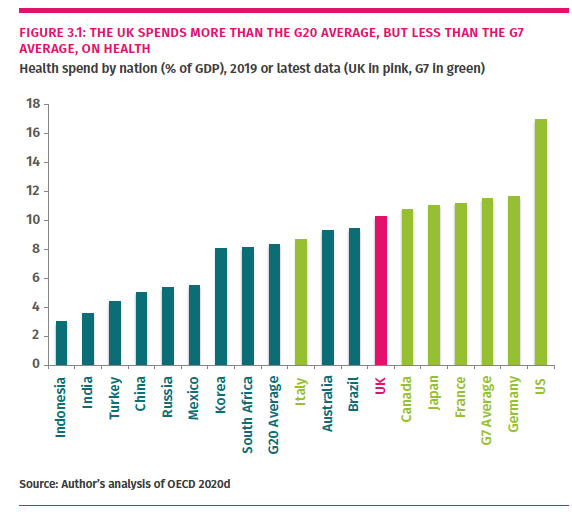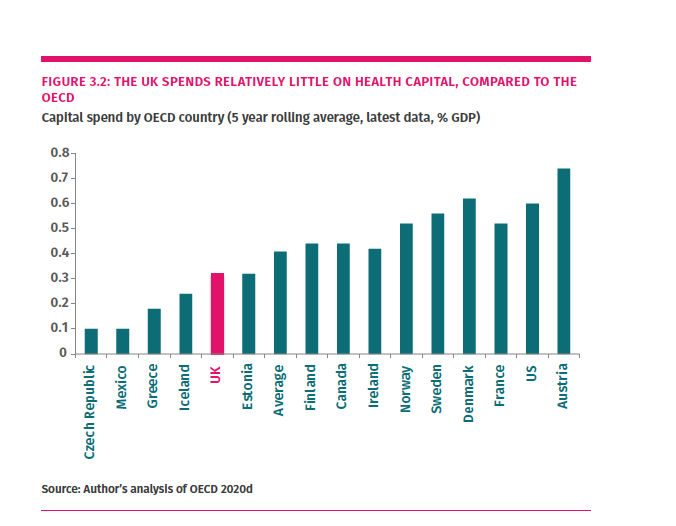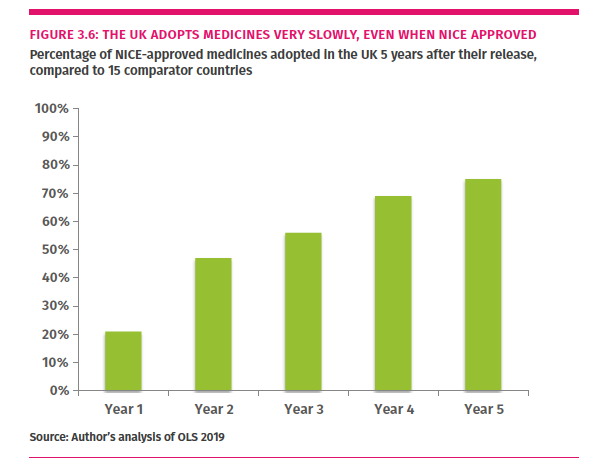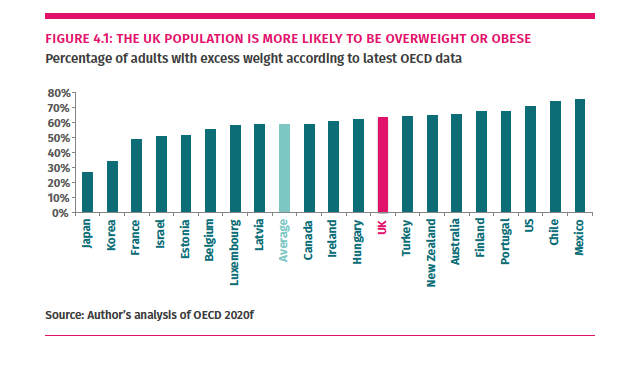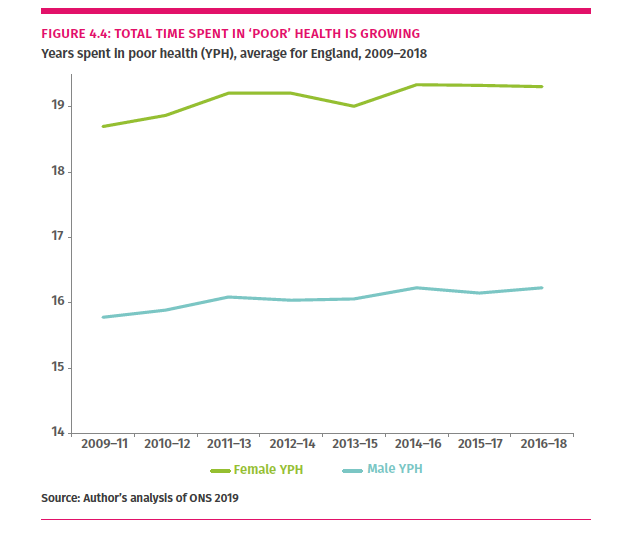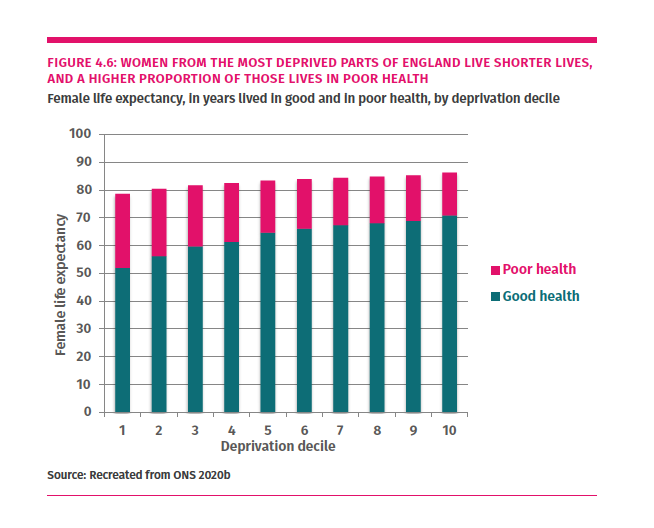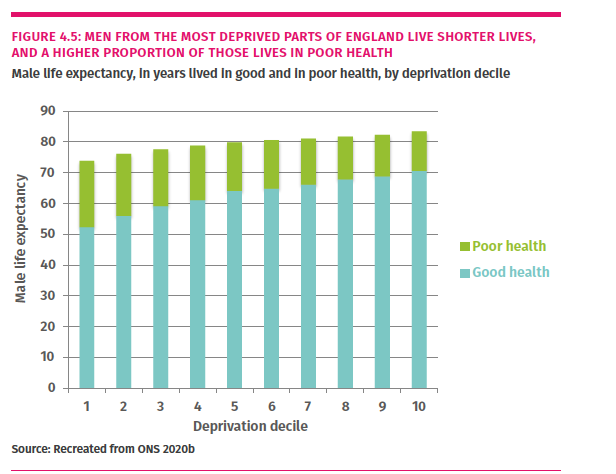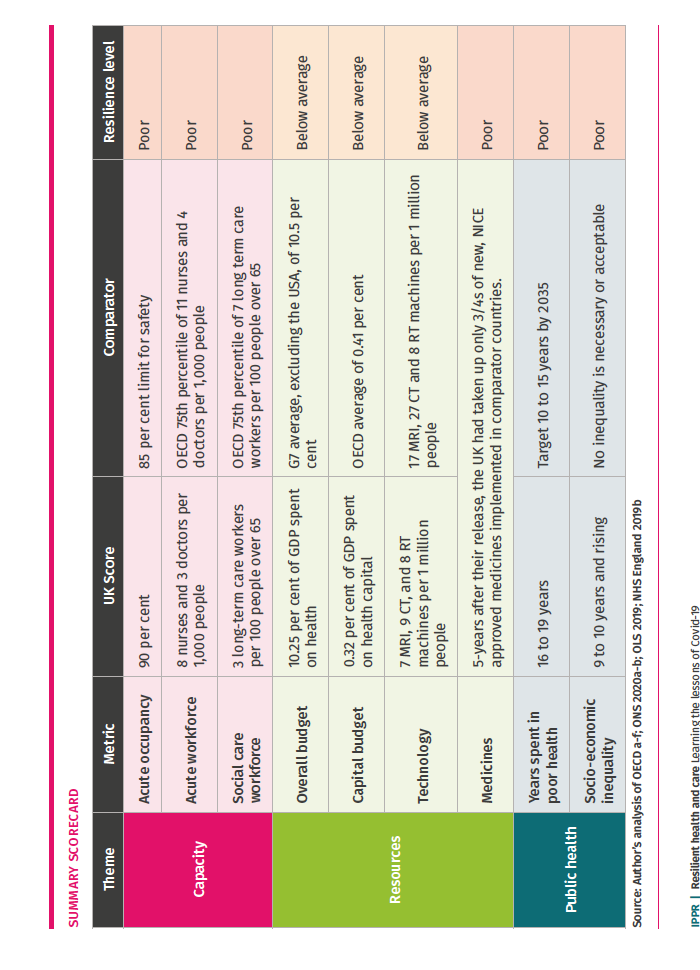THREAD: On new IPPR research in today's Financial Times.
We show that our definition of efficiency during austerity stripped resilience out of our health and care system.
We call on government to introduce new 'resilience rules', modelled on the fiscal rules. More detail below!
We show that our definition of efficiency during austerity stripped resilience out of our health and care system.
We call on government to introduce new 'resilience rules', modelled on the fiscal rules. More detail below!
First, govt cut hospital beds throughout the decade. That's not bad on its own. We all want more care in the community/home
But, we didn't replace bed closures with community/social care capacity!
Occupancy rates flew up. On eve of Covid-19, 80pc of hospitals had unsafe levels
But, we didn't replace bed closures with community/social care capacity!
Occupancy rates flew up. On eve of Covid-19, 80pc of hospitals had unsafe levels
A bed is only good if staffed.
This decade has seen us experience a workforce crisis.
As @theRCN have highlighted, nursing shortages are the worst in health. We also have huge shortages in the long-term care workforce (social care).
This is bad news when demand spikes!
This decade has seen us experience a workforce crisis.
As @theRCN have highlighted, nursing shortages are the worst in health. We also have huge shortages in the long-term care workforce (social care).
This is bad news when demand spikes!
As @DrRosena has recently shown, low workforce capacity threatens mental health.
In 2019, 500,000 NHS staff worked through stress related illness.
During Covid this got worse as IPPR showed in April. Unchecked, it will drive more people out the sector.
https://www.ippr.org/research/publications/care-fit-for-carers
In 2019, 500,000 NHS staff worked through stress related illness.
During Covid this got worse as IPPR showed in April. Unchecked, it will drive more people out the sector.
https://www.ippr.org/research/publications/care-fit-for-carers
Obviously, we need to talk about funding. That underpins staff shortages and a lack of investment in community/social/home care.
In short, we still don't spend enough. We are well behind other G7 nations on overall budget.
In short, we still don't spend enough. We are well behind other G7 nations on overall budget.
And we are well behind on capital too.
@NHSProviders and @IPPR have done good work on why capital is important.
One example - the NHS has an urgent maintenance backlog (sewage leaks, collapsing ceilings, fire hazards) of over £3bn!
Read more: https://www.ippr.org/research/publications/the-make-do-and-mend-health-service
@NHSProviders and @IPPR have done good work on why capital is important.
One example - the NHS has an urgent maintenance backlog (sewage leaks, collapsing ceilings, fire hazards) of over £3bn!
Read more: https://www.ippr.org/research/publications/the-make-do-and-mend-health-service
This constrains our health offer. People want the NHS to provide the best. But we don't - on medicine, tech, or care pathways.
This is a political choice and an existential threat to the health service we know today.
This is a political choice and an existential threat to the health service we know today.
It also means we'll find it tougher to get through the cancer/diabetes/CDV backlog -
see @Carnall_Farrar analysis here for more on why innovation is so important to that - and the economic gains more innovation could provide.
https://www.ippr.org/research/publications/the-innovation-lottery
see @Carnall_Farrar analysis here for more on why innovation is so important to that - and the economic gains more innovation could provide.
https://www.ippr.org/research/publications/the-innovation-lottery
Public health is another area we lack resilience. A healthy population finds it easier to resist outbreaks.
Yet, it's taken until today for the government to take obesity seriously.
We've been struggling for a while!
Yet, it's taken until today for the government to take obesity seriously.
We've been struggling for a while!
In fact, we are living many, many more years in ill health than ever before. This is down to a poor approach to public health - one that has seen almost £1 billion sliced off local public health budgets. https://www.ippr.org/blog/public-health-cuts
@ADPHUK
@ADPHUK
Of that £1 billion, £1 in £7 came from just the 10 poorest areas in the country.
Suprise, suprise, that leaves huge inequality open. And Covid-19 took advantage.
Suprise, suprise, that leaves huge inequality open. And Covid-19 took advantage.
What do we need? Resilient health and care.
How do we get it? We need to recreate the fiscal rules, but in health. Our full recommendations on what these should be here. https://www.ippr.org/research/publications/resilient-health-and-care
How do we get it? We need to recreate the fiscal rules, but in health. Our full recommendations on what these should be here. https://www.ippr.org/research/publications/resilient-health-and-care
Phew. That's a long thread. Did you skip down to here? Then here's the summary! Might be of interest to @Medact @NHSProviders @NHSConfed @CRUK_Policy @Carnall_Farrar @NHSLocalGrowth @theRCN @TheBMA @SoniaAdesara @JonAshworth @MattHancock

 Read on Twitter
Read on Twitter